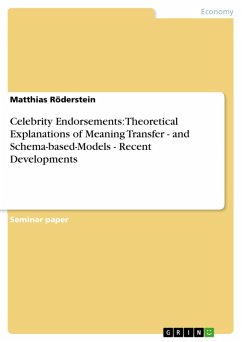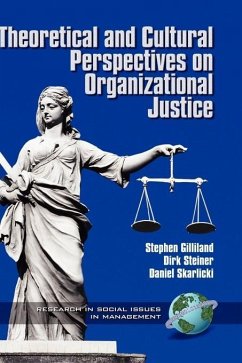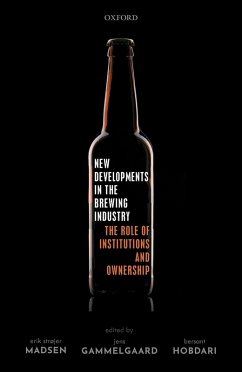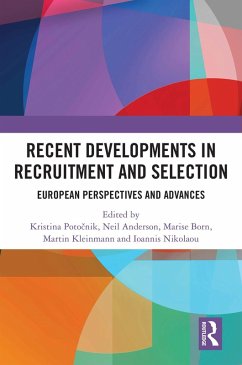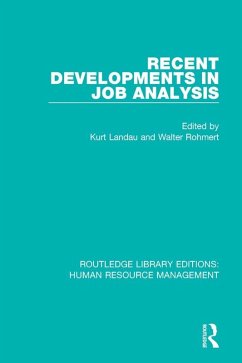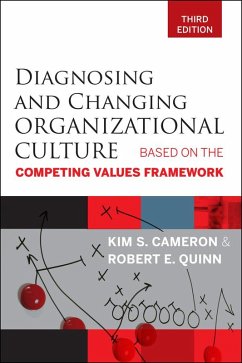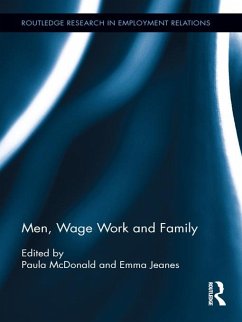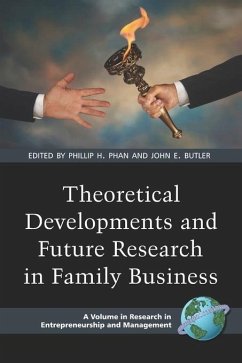
Theoretical Developments and Future Research in Family Business (eBook, ePUB)

PAYBACK Punkte
19 °P sammeln!
Until recently, research in family business has been confined to a sub-group of entrepreneurship scholars, labor economists, and sociologists. Family business employment is often the only economic option available to migrants, the first entrepreneurial experience for young people, and a source of an economy's new business creation activities. These issues are typically framed in terms of the generational transfer of wealth, management succession, or the interplay between the economic system of a family and its sociopolitical system. The phenomenon is clearly widespread but for some reason cont...
Until recently, research in family business has been confined to a sub-group of entrepreneurship scholars, labor economists, and sociologists. Family business employment is often the only economic option available to migrants, the first entrepreneurial experience for young people, and a source of an economy's new business creation activities. These issues are typically framed in terms of the generational transfer of wealth, management succession, or the interplay between the economic system of a family and its sociopolitical system. The phenomenon is clearly widespread but for some reason continues to be poorly understood. We believe that progress on the empirical front has been hampered by a lack of accepted theoretical frameworks. For example, attempts to employ agency theory, geographic agglomeration and spill overs, social networks, sense making, bargaining and other frameworks have been scattered. In our view, the extant research has not created the theoretic ballast that can withstand repeated empirical verification. More fundamentally, researchers are beginning to ask, "Is family business theoretically distinctive or a convenient phenomenon for exploiting familiar theories with new data?" We believe the time is ripe for a focused look at the theoretical history and prospects of family business research. Review articles grounded in economics, sociology, psychology and political economy and that offer multidisciplinary implications are especially sought. Theory based empirical papers are also welcomed. We believe that there are exciting opportunities for theory development and so encourage authors to focus on this in their submissions. In sum, the focus of this volume is on showcasing and advancing the latest research in family business.
Dieser Download kann aus rechtlichen Gründen nur mit Rechnungsadresse in A, D ausgeliefert werden.




